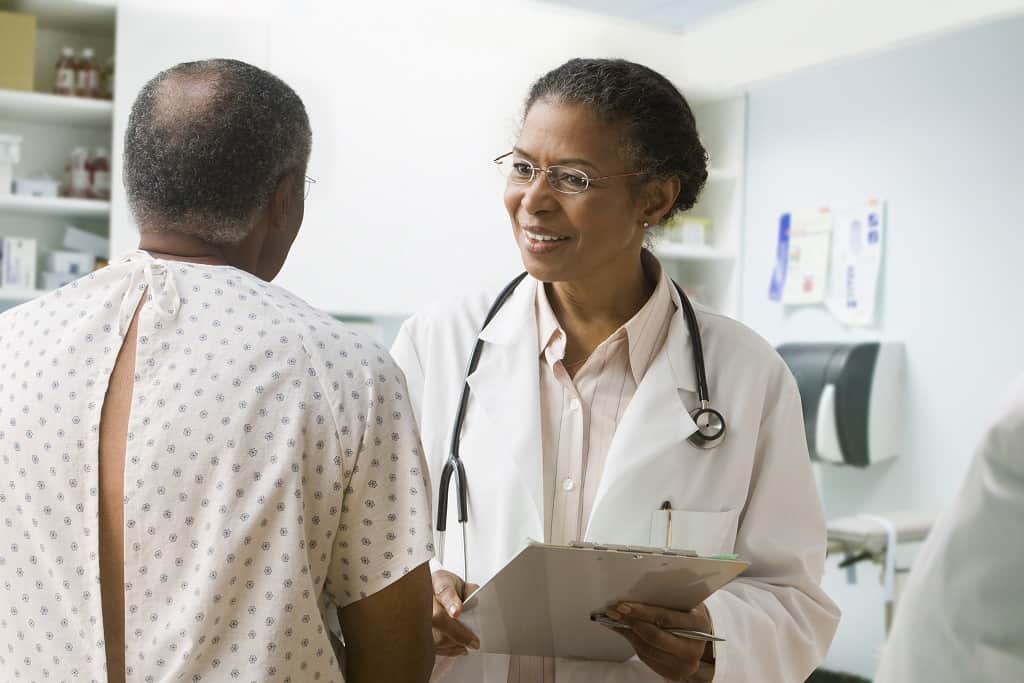

9 AM - 5 PM



The medical field especially oncology is exciting, ever-changing, and dramatic in nature. Healthcare is fast paced, you are dealing with life or death situations, and new patients come in every day, so you never will experience the same day twice.
Although a medical career is extremely rewarding and often lucrative, healthcare professionals experience high levels of stress, and the field requires a great deal of commitment, endurance and hard work.
It’s a long and hard way to the making of a doctor. If you want to be a specialist, you have to dedicate 15 years of your life to devote to school and training! But, all the hard work pays when you are finally a doctor and bring your patients back to a normal, healthy life.
Being an oncologist allows me to continually learn and be updated about medical advancements in order to offer the best services for my patients. An oncologist is a doctor who specializes in cancer treatment. Many times oncologists take on a specialty or even a sub-specialty and focus on specific types of patients-like pediatric oncologists-or cancer of a specific area of the body-like gynecological oncologists.
In terms of the advantages and disadvantages of medical oncology in particular, one of the most rewarding aspects of being an oncologist is giving hope to a patient with cancer. Treating the patient means hopefully eradicating the cancer and giving the patient a new lease on life. When patients are cured of cancer this is a very rewarding experience for oncologists. I believe that oncologists not only treat cancer but also have a role in preventing and early detecting the disease; through educating the community about the risk factors of different types of cancer and how to use the screening tests available for early detection. Early detection is the best protection as it saves many lives, once the cancer is discovered in its early stages is much easier to control compared with the advanced stages presentation of the disease.
On the other hand; cancer being the second leading cause of death means that oncologists sometimes lose patients to cancer and that would be very hard to face. When you give it your best and still that is not enough and science fails and the patient only has you to depend upon for life and there is NOTHING you can do for them, then it would be tough. The drawback relates to the severity of each condition on a case-by-case basis, because just as there is a large chance to make an immeasurable improvement on the quality of life for cancer patients, there is also a non-negligible potential for situations that are challenging to ameliorate.
When faithful patients are diagnosed with cancer, they turn to their faith to help them find comfort and meaning during difficult times. The challenge of the disease helps them renew their faith.
According to the US Centers for Disease Control and Prevention (CDC), 69% of cancer patients say they pray for their health. A recent study published in Cancer, a peer-reviewed journal of the American Cancer Society, suggests a link between religious or spiritual beliefs and better physical health reported among patients with cancer.
“In our observational study, we found people who found feelings of transcendence or meaningfulness or peace reported feeling the least physical problems,” said lead author Heather Jim, PhD. “A lot of cancer patients have a reaction when diagnosed of ‘Why me?’ or feel like they’re being punished or get angry. This is a normal part of coming to terms with a cancer diagnosis.”
For the report, researchers from Moffitt Cancer Center and colleagues looked at the results of several published studies on the topic, which included more than 32,000 cancer patients combined. They found a link between patients with higher levels of spiritual well-being and reporting better physical health. The researchers did not look at whether spiritual well-being affected patient survival or cancer recurrence.
According to the National Comprehensive Cancer Network (NCCN), while a cancer diagnosis can encourage some people to renew their faith, it can have the opposite effect on others. For them, a diagnosis can challenge their faith and make them doubt their beliefs or religious values. They may become angry at God or doubt the existence of a higher power. The NCCN says feeling this way can make it harder for patients to cope with cancer and its treatment. It can be helpful and healthy to talk to someone who can understand these feelings of doubt and anger.
Finally; I have to admit that being an oncologist is not only a job but it’s for me more as a mission and a call at the same time. As in what other profession can you touch lives the way you can in the Healthcare industry? With God’s help you could be the tool to save a life from ending. You can touch lives and impacting families to find faith and comfort even in the middle of their hard times. Not only will you impact individuals, you could also make an impact on entire communities!
The Cancer Centre Bahamas at the Medical Pavilion Bahamas remains the only American College of Radiation Oncology (ACRO) accredited cancer center outside of North America that provides for all of your cancer needs Screening Diagnostic, Medical, Surgical, Paediatric and Radiation Oncology Treatment all under one roof.